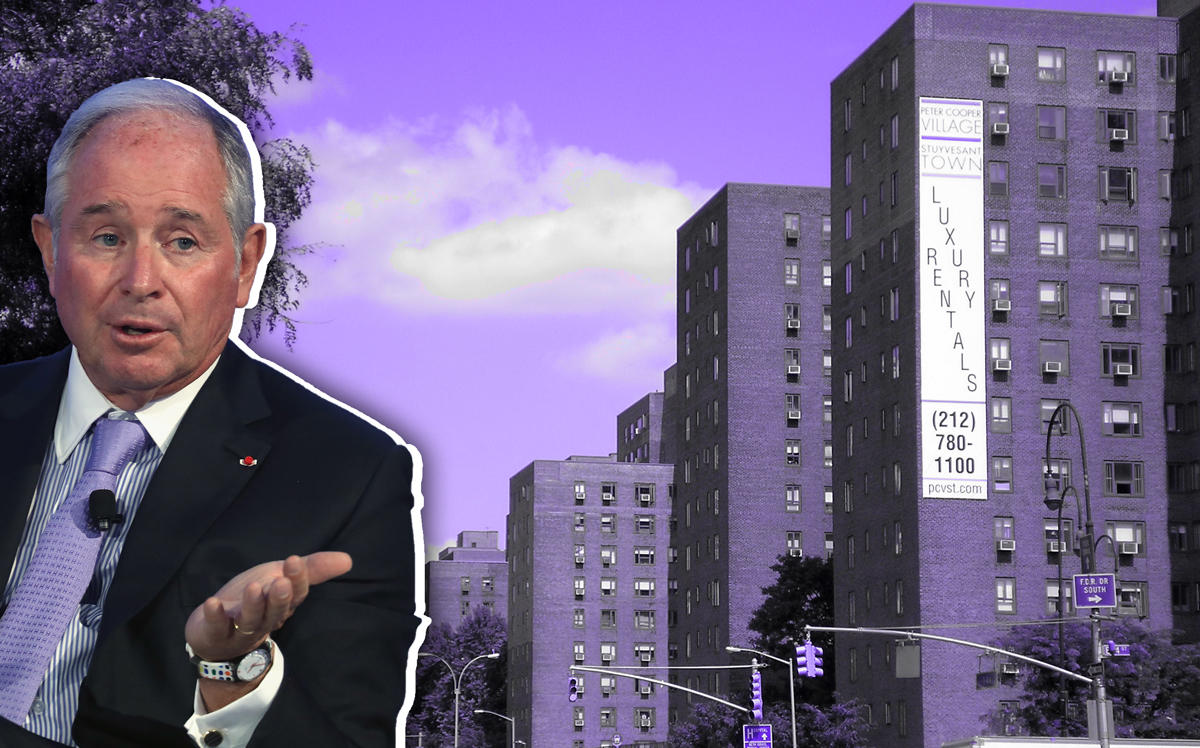Trending
Blackstone “warehousing” rent-stabilized apartments at Stuy Town
20 to 50 Stuytown apartments are staying vacant

Blackstone Group is keeping some rent-regulated apartments at Stuyvesant Town and Peter Cooper Village vacant, sources say, after changes to the rent law impacted landlords’ ability to reap profits.
There are between 20 to 50 units being left empty, according to the complex’s tenant association president Susan Steinberg. Blackstone, which in partnership with Ivanhoe Cambridge paid $5.3 billion for the 11,000-unit complex, had announced in July that it would halt renovations because of the new limits on individual apartment improvement (IAI) and major capital improvement (MCI) programs. (Emergency fixes such as leaks and hot water service would continue, a spokesperson said at the time.)
A source familiar with Blackstone’s thinking told The Real Deal that the landlord was “in the process of evaluating capital investments and operations. No final decisions have been made.”
READ MORE:
Creative ways landlords are getting around the new rent rules
What the new rent law will do to the average stabilized apartment
Steinberg noted that Blackstone has a “responsibility to look at their bottom line,” and that the landlord may be waiting to see what will happen as the courts and state agencies rush to understand the sweeping reforms the state Legislature made to rent laws in June. Seven New York City landlords, along with the Rent Stabilization Association and the Community Housing Improvement Program, are suing over the reforms.
Blackstone, though not involved in the suit against the state’s housing agency, had joined others to spend millions to avert tenant-friendly changes to the rent laws in Albany.
When Blackstone and Ivanhoe bought the sprawling housing complex in 2015, the landlords received perks from the city in exchange for preserving 5,000 affordable housing units for two decades. That included an interest-free loan from the Housing Development Corporation, $220 million in financial assistance, a waived mortgage recording tax and air rights benefits. A 2018 study from the city’s Independent Budget Office found that the benefits of the deal were exaggerated, because tenants were likely to remain in their apartments for two-thirds of the 20-year deal and a low turnover rate means fewer units will become available to low-income renters.
As for warehousing units, according to real estate law firm Belkin, Burden Wenig and Goldman’s Sherwin Belkin, there is no restriction, except in some limited condo-conversion scenarios.
“I assume there are many cases where making repairs and renovations and putting apartments on the market is simply not worth the effort now,” Belkin said.
While landlords with rent-stabilized apartments may have taken vacant units off the market due to the new limits on offsetting renovation costs, there are other potential factors. The industry, Belkin said, may also be hoping that unintended effects of the new rent laws, like warehoused rent-regulated apartments, will attract the attention of lawmakers and compel them to “make remedy” in subsequent legislative sessions.
For Stuy Town resident Pete Harrison, Blackstone’s willingness to warehouse apartments is evidence that the firm is “just fine.”
“At the very least they are slow-walking stuff, to give the perception of a capital strike and try to spook people,” Harrison said.
Stellar Management is also keeping three apartments vacant at its Central Park Gardens apartments at 50 West 97th Street, according to the building’s tenant association president Sue Susman. Stellar’s 14-story 274-unit apartment building has shed 20 of its 224 rent stabilized apartments since 2007, according to data from tax bills. The persistent vacancies of the rent-regulated apartments in Stellar’s building have been accompanied with buyout offers for apartments adjacent to them, according to Susman, which may be an effort to “substantially change the configuration and set a new rent.”
A representative from Stellar Management said that they could not confirm or deny that apartments are being held vacant at their 50 West 97th Street apartment building in order to combine them into a new apartment.
The current legal framework allows landlords to set a one-time first rent if there is a substantial change to the floor plan — although the new “Frankenstein” apartments must remain stabilized.




